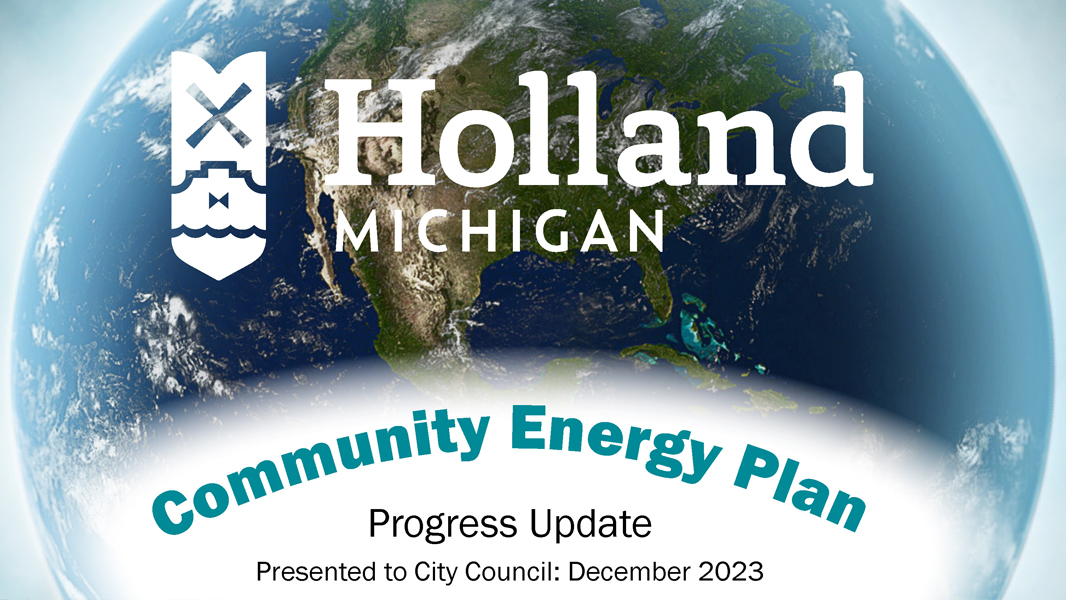Community Energy Plan Annual Report
Learn about the impact that all of us in Holland are making on our global community and how you can get involved. Together we will work towards a sustainable future through reduced carbon emissions.
Holland Community Energy Plan
Holland BPW and the City of Holland share a passion for the Community Energy Plan (CEP). The initial plan was published in 2011, with a goal to reach 10 metric tons of CO2 emissions per capita by 2050. At that time Holland’s carbon footprint was 24 metric tons of CO2 emissions per capita. When the James DeYoung Coal Plant closed and Holland Energy Park went into full operation in 2017, the City of Holland’s emissions were cut in half. This transition escalated positive progress on our CEP goal and left us asking how we would meet our goal, and if our goal was aggressive enough.
Every three years, City Council and the Mayor of Holland appoint a team of sustainability experts to the Strategic Development Team (SDT), who review the CEP and recommend revisions. The most recent results of the SDT were presented to City Council in September 2021. New accelerated targets were set for the CEP, making the new goal 12.25 metric tons of CO2 emissions per capita by 2025. Previously, the goal was 10.00 metric tons of CO2 emissions per capita by 2050. To facilitate the accelerated target, the SDT provided a strategy that identifies five key levers of focus for our community. Each lever includes a goal and suggested actions.
Key Levers
Electric Portfolio
Continue to shift Holland’s electric portfolio to prioritize emission levels that align with current climate science and regulatory guidelines while maintaining excellence in reliability and affordability.
Building Energy Consumption
Reduce carbon emissions coming from homes, businesses and other buildings.
Transportation
Reduce carbon emissions in the transportation sector.
Education
Establish a Community Education/Awareness Program to promote CEP programs, performance and goals.
Carbon Offsets
Take a leadership role in the creation of a community-based system to provide businesses and residents access to carbon offsets to meet their individual goals and commitments, including the option of local carbon offset projects.


